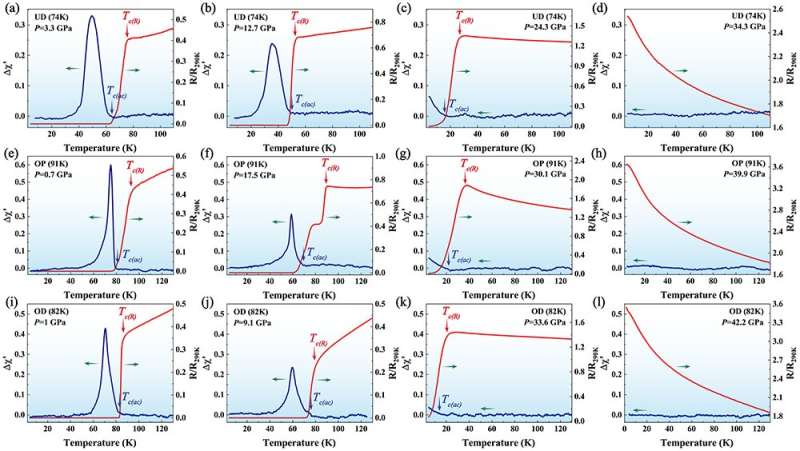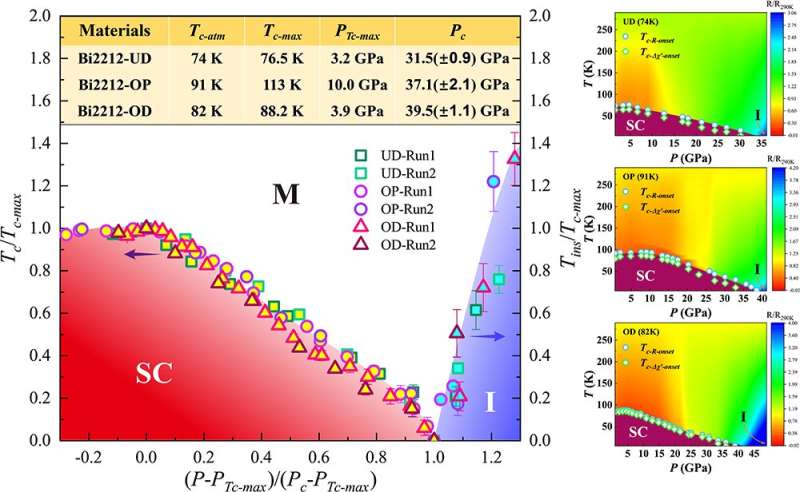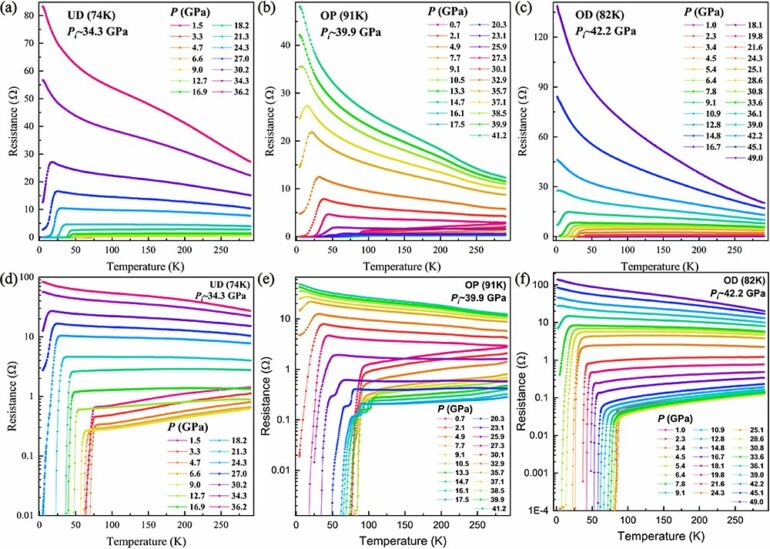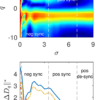The discovery of cuprate high-temperature superconductors in 1986 impacted science and technology considerably and continues to fascinate the communities of condensed matter physics and material sciences because they host the highest ambient-pressure superconducting transition temperature and unconventional electronic behavior. However, the underlying mechanism of the superconductivity is yet an unsolved mystery. Searching for the universal links between the superconducting state and its neighboring quantum states is considered an effective approach to elucidate the high temperature superconducting mechanism.
Recently, Prof. Sun Liling’s team from the Institute of Physics (IOP) of the Chinese Academy of Sciences, in collaboration with Profs. Xiang Tao, Zhou Xingjiang and hu Jiangping Hu from IOP, Prof. Gu Genda from the Brookhaven National Laboratory and Prof. Lin Chengtian from the Max Planck Institute, has discovered the pressure-induced quantum transition from superconducting state to insulating-like state in bismuth-based cuprate superconductors, through their state-of-the-art in-situ high-pressure measurements.
These experimental results reveal that the observed quantum phase transition is universal in the bismuth-bearing cuprate superconductors, regardless of the doping level and the number of copper oxide (CuO2) planes in a unit cell.

n-plane resistance (R) and ac susceptibility (Δχ’) as a function of temperature (T) for the Bi2Sr2CaCu2O8+δ superconductors at different pressures: (a)-(d) for the under-doped superconductor; (e)-(h) for the optimally-doped superconductor; (i)-(l) for the over-doped superconductor. The blue lines in the figures are the data of Δχ'(T), while the red lines are the data of R(T). The red and blue arrows indicate the temperatures of the onset superconducting transition detected by resistance and ac susceptibility measurements, respectively. © IOP
It is a grand surprise for them that the system enters into an insulating-like state after the superconductivity is fully suppressed, because it is well known that the ground state of the over-hole-doped non-superconducting cuprate is a metallic state, and naively one expects that by applying pressure the bandwidth should be increased.

Pressure-Tc phase diagrams for Bi2Sr2CaCu2O8+δ superconductors. The Right panels are the phase diagrams established by the experimental results from the under-doped (UD), optimally-doped and over-doped samples, together with the mapping information of temperature and pressure dependent R (shown in color scale). The left panel is a normalized phase diagram that is built on the basis of the experimental phase diagrams (the right panels). © IOP
As a result, the system should become more metallic, instead of insulating-like. This discovery of the universal quantum transition provides a fresh challenge and a new opportunity for better understanding the mechanism of superconductivity in these materials.
The study, titled “Quantum phase transition from superconducting to insulating-like states in a pressurized cuprate superconductor,” has been published in Nature Physics.
More information:
Yazhou Zhou et al, Quantum phase transition from superconducting to insulating-like state in a pressurized cuprate superconductor, Nature Physics (2022). DOI: 10.1038/s41567-022-01513-2
Provided by
Chinese Academy of Sciences
Citation:
Scientists discover quantum phase transition in pressurized cuprate superconductors (2022, February 21)



